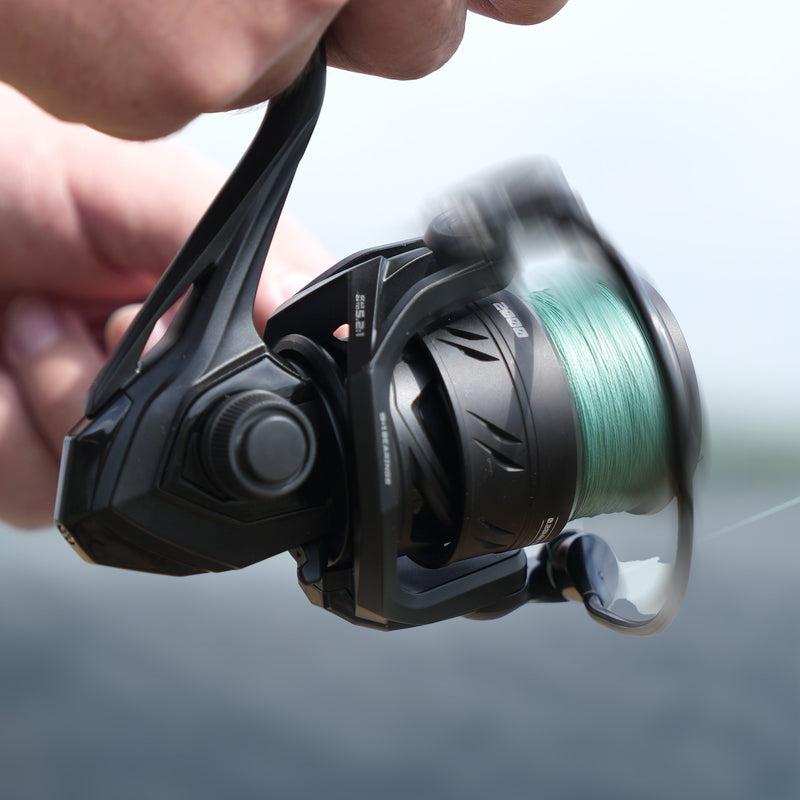Cast Your Line: Discover the Ultimate Fishing Reel for Every Angler!
Choosing the right fishing reel is crucial for any angler looking to enhance their fishing experience. With a wide variety of different fishing reels available, each designed for different types of fishing, selecting the right one can make all the difference between a successful day on the water and a frustrating outing. Whether you're casting for bass in a local lake or fly fishing in a mountain stream, understanding the different options is essential. This article aims to guide both novice and experienced anglers in selecting the best fishing reel tailored to their specific needs and fishing styles.

Understanding Fishing Reels
Fishing reels are mechanical devices used to wind and store fishing line, allowing anglers to cast their bait or lure and retrieve it efficiently. They play a vital role in the fishing process, as they not only aid in casting but also help control the line and the fish once hooked. A fishing reel typically consists of several key components, including the spool, handle, drag system, and gear ratio, each serving a specific function. The spool is where the fishing line is stored, while the handle allows the angler to retrieve the line. The drag system controls the resistance against the line when a fish is pulling, and the gear ratio determines how quickly the line is retrieved. Together, these components create a smooth and effective fishing experience.
Types of Fishing Reels
When it comes to fishing reels, there are four main types: baitcasting, spinning, fly, and spincasting reels. Each type has unique features suited for different fishing styles and target species. Understanding these differences can help anglers choose the right reel for their needs. Baitcasting reels are known for their precision and control, making them ideal for experienced anglers targeting larger fish. Spinning reels are versatile and user-friendly, perfect for various fishing conditions. Fly reels are specialized for fly fishing, allowing for delicate presentations. Lastly, spincasting reels offer a beginner-friendly design, making them great for newcomers to the sport. Each of these reels has its strengths, and knowing when to use them can significantly affect your fishing success.
Baitcasting Reels
Baitcasting reels are designed for precision and control, making them popular among experienced anglers. They allow for longer casts and better accuracy when targeting specific spots. However, they require practice to master, as backlash can occur if not used correctly. Baitcasting reels are best suited for bass fishing and other species that require heavier lures. The ability to adjust the drag system further enhances their functionality, making them a preferred choice for serious anglers.
Spinning Reels
Spinning reels are among the most popular types of fishing reels due to their ease of use and versatility. They are ideal for light to medium fishing and can handle various species, from panfish to larger game fish. The open-face design allows for quick line retrieval, making it easy to cast and reel in. Spinning reels are great for beginners and experienced anglers alike, as they can adapt to different fishing styles with ease.
Fly Reels
Fly reels are specifically designed for fly fishing, where the angler uses a lightweight lure called a fly. These reels are typically simpler in design, focusing on storing line and providing drag when a fish is hooked. They are best used in freshwater environments, especially for trout and salmon fishing. Fly reels offer unique challenges and require a different casting technique, making them a favored choice for those who enjoy the art of fly fishing.
Spincasting Reels
Spincasting reels are often recommended for beginners due to their user-friendly design. Featuring a closed face, they prevent tangles and make casting straightforward. Spincasting reels are perfect for fishing in ponds, lakes, or rivers for smaller species. Their simplicity allows newcomers to focus on learning the basics of fishing without the intimidation of more complex reel types.
Choosing the Right Fishing Reel
Selecting the right fishing reel involves considering several factors, including your fishing style, the species you're targeting, your level of experience, and your budget. Think about the type of fishing you enjoy most—are you casting lures for bass or fly fishing in a stream? Each style may require a different type of reel. Additionally, consider the species you are targeting; larger fish typically require more robust reels. If you are new to fishing, a spinning or spincasting reel may be more suitable, as they are easier to handle. Lastly, set a budget, as fishing reels can vary widely in price. Remember that investing in a quality reel can improve your fishing experience significantly. Don't hesitate to seek advice from friends or local fishing experts, as personal recommendations can often lead you to the best choice for your needs.
Enhancing Your Fishing Experience
In summary, understanding the various types of fishing reels and their functionalities is essential for enhancing your fishing experience. Whether you opt for a baitcasting reel for precision, a spinning reel for versatility, a fly reel for targeted fishing, or a spincasting reel for simplicity, the right choice can make all the difference. As you consider your specific needs and preferences, remember that the best reel is one that complements your fishing style and helps you enjoy the sport to its fullest. Happy fishing!








